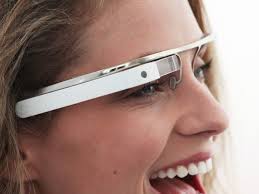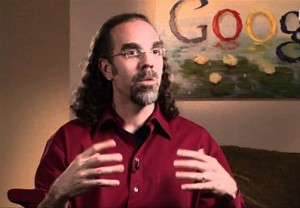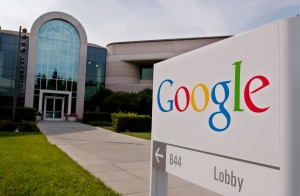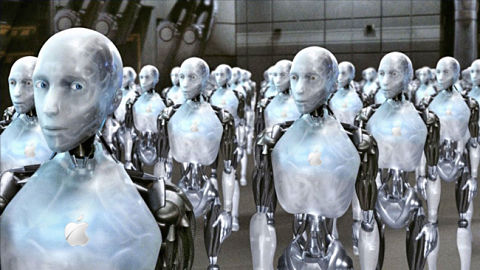Google has a Disneyland, albeit an intellectual’s Disneyland quality about it–smart and appealing, but hollow inside. Despite or because of this, the virtual juggernaut aims to take over the world for the betterment of humanity.
 Not content with that modest aim, Google X’s (the research arm of Google) Astro Teller says they want to “make the world a radically better place in as many ways as they can as fast as they can.” Hold on there Bro.
Not content with that modest aim, Google X’s (the research arm of Google) Astro Teller says they want to “make the world a radically better place in as many ways as they can as fast as they can.” Hold on there Bro.
Floating a network of balloons into the stratosphere to connect places on earth where people can’t experience the immense benefits that Google provides will not make the world a radically better place. That idea is aptly named “Project Loon,” which is intended a self-deferential double entendre, but actually describes the feeling one sometimes gets about Google.
Astro Teller is the grandson of the physicist Edward Teller, the father of the hydrogen bomb, or “Super” as he called it. He pushed for its development even before the Soviets had detonated an atomic device. He also blocked all attempts to limit nuclear bombs to fission rather than fusion (which is thousands of times more destructive), by technology or treaty.
Astro Teller was interviewed recently by Charlie Rose, who began, after bringing up and then glossing over Astro’s grandfather, by saying, “What excites me about what you do is the notion that you have to think big, that in fact if you’re going to make any real change you have to think big.”
Thinking big doesn’t pertain to technological innovation. That has its place, just not first place like techno-zealots believe. Thinking big pertains to radically changing human consciousness, beginning within one’s own mind and heart.
Thinking big also has to do with asking the spiritual, philosophical and political questions confronting people everywhere. That means tackling assumptions about human nature, about culture, and about consciousness, which neither Charlie Rose nor Astro Teller showed any interest in doing.
Disturbingly, Teller talked repeatedly about “making the world a radically better place,” while holding  assumptions and beliefs about the place of science and technology that hinder radical change. “There has to be some scientific reason to believe that we at least have a chance” to bring about radical change, Teller said. But radical change isn’t a function of science and technology at all.
assumptions and beliefs about the place of science and technology that hinder radical change. “There has to be some scientific reason to believe that we at least have a chance” to bring about radical change, Teller said. But radical change isn’t a function of science and technology at all.
For example, Google Glass is “a head-worn display that allows you to see a lot of digital information very briefly and very seamlessly in your life.” As such, it is a solution to a problem that is beyond the limits, indeed beyond the writ of technology to resolve.
Yet Google X persists in trying to resolve it through technology. “The problem,” Teller declares, “is that we mediate so much of our lives through the digital world now, our professional lives, our personal lives, and our digital interactions are in desperate need of an update.”
With the majority of people’s faces plastered to their stupid phones, whether at home or in public, you would think that wearable technology at voice command would be the answer to eyes-down-thumb-typing through life.
But digital interactions have taken the place of human interactions in much of the West, and when “humanity gets a serious update in how we interact with the digital world,” as Teller puts it, that will only make the problem much worse.
In short, the technology of digital mediation is greatly exacerbating the difficulty of human relationship. “Seamless interaction with the digital world” will, without deeper insight and a different relationship to technology, destroy human relationship. Thus the enormity of the challenge eludes Google geeks—as it must, since they’re in the high technology business.
The basic truth is simple: Technology cannot and will not ever produce radical change. Why? Because radical change, which literally means change at the root, is a matter of the transmutation of the individual and human consciousness. And that can only come about in self-knowing individuals willing to stand alone, and inquire with others.
So it’s simply childish to believe that the gadgets and gizmos of Google, or any other tech company, can change consciousness and the world.
 Teller asks the right question in the wrong way: “How can we get technology out of the way?” But it cannot be gotten out of the way if there is no place or time we can be without the mediation of the digital world. Can Google design technology that not just allows but encourages us to step out of the net and stand on the ground?
Teller asks the right question in the wrong way: “How can we get technology out of the way?” But it cannot be gotten out of the way if there is no place or time we can be without the mediation of the digital world. Can Google design technology that not just allows but encourages us to step out of the net and stand on the ground?
Of course that would imply a different relationship to nature and to human beings. Therefore the real question pertains not just to digital mediation, but mediation by the things of thought per se, whether mental or technological.
Let’s put the question the other way: Is there experiencing as long as there is mediation? Most philosophers say there is no such thing as unmediated experience, and that’s true if you define experience as the movement of the past as knowledge, memory and symbol.
But there is such a thing as unmediated experiencing, which entails holding knowledge in abeyance and letting go of previous experience. That’s the ground of insight, relationship and being. And therefore it is the true ground of the undivided, unconditioning human being. That, I maintain, is what technology should serve.
To change the culture and consciousness we have to change our own basic thinking, and that is much more difficult than any “moon-shot.” Rose asked the right questions in the wrong context: “Are you doing something so difficult that it will take everything you have, plus, to achieve it? Is this possible? Not how do we continue what we’re doing, how do we make incremental changes.”
As much superficial, technological change as there is, and as much as people like Teller talk about radical change, they really don’t want things to radically change. I’m not even sure I do, and radical shifts in consciousness happen within one nearly every day.
As Astro Teller said, “If you’re committed to the mountain you’re already on, the best you can do is get to the top of that mountain.” But the mountain of technology is turning out to be a Tower of Babel. We have to climb down every day and leave it behind to ascend the true mountain.
Martin LeFevre

